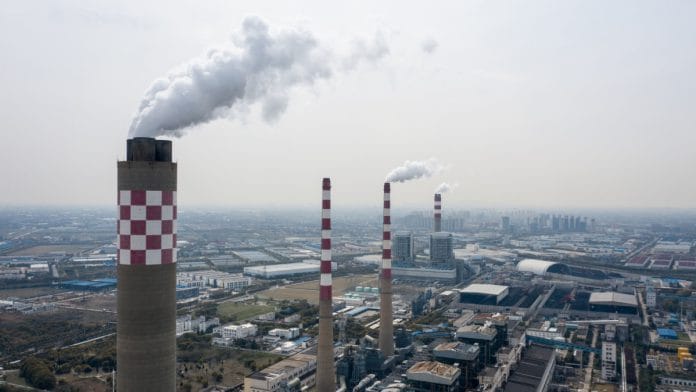Negotiations ahead of the Group of 20 summit in Rome dragged into Friday, stuck on energy and climate issues. Some countries singled out China, saying it is refusing to beef up commitments to limit temperature increases and digging in over coal, with Russia and India also dragging the chain.
The countries are set to commit to ending international funding for coal-fired power plants overseas during this weekend’s meeting but are struggling to agree on a date by when they’ll ditch supporting them at home, according to officials briefed on the talks.
In short, there is no progress from a meeting of environmental ministers three months ago, and with signs of a blame game starting to form, there is limited scope for the sherpas — as the officials doing the leg work on the communique are known — to make any progress. Wanting overseas coal addressed was formally raised by Italy back in July.
It is looking likely that it will be down to leaders to step in aggressively when the summit formally kicks off on Saturday.
The difficulties facing negotiators are underscored in a new version of the draft conclusions which dates from the end of Thursday night’s talks and was seen by Bloomberg News. The section on energy and climate has shrunk to less than one line, and remains “under discussion.” Officials briefed on the debate said the Chinese delegation was the main obstacle, but they had support from other countries including Russia and India. One G-20 diplomat said Russia and India were pushing back hard against the proposals on coal.
On the push to stop financing coal plants overseas, one official warned that would likely only apply to new projects, and that some of those in early-stage development by China would continue.
The main climate and energy debate is between developing and developed countries because “we are in the same storm but not in the same boat,” Russian sherpa Svetlana Lukash told reporters in Rome on a conference call Friday. The latest talks “show that developed nations understand that we all need to respect each other’s national situations,” she said.
Russia can’t abandon coal but is switching some of its plants to gas power and will gradually reduce coal’s share in power generation, she said. Still, “without relying on traditional energy resources we can’t maintain stable development,” Lukash said.
Diplomats from Italy are pushing for a reference to keep the objective of limiting global warming to 1.5 degrees within reach by 2050, two people said. Another official said China, Russia and some developing nations were not convinced.
The fact that even something so underwhelming and uncontroversial is running into opposition does not bode well for talks that will then roll into the UN’s COP26 climate summit in Glasgow, Scotland, next week and are designed to improve on the goals set under the 2015 Paris climate accord.
Charles Michel, head of the European Council, told reporters that there were still “serious problems” with getting G-20 members to agree on the draft conclusions. Some countries wanted “another starting point” on coal.
“Some of the members of the G-20 are reluctant to write some words when it comes to subsidies for fossil fuels for example,” Michel said. Delegations are yet to agree on carbon pricing and coal issues, which after hours of negotiations still remain unsettled.
An earlier draft of the communique did refer to best efforts to ending the use of coal in domestic power generation but included no firm timeline. Adding to a sense of foreboding is the fact that key players, including Russia’s Vladimir Putin and China’s Xi Jinping, will not attend the summit in person. Without their personal intervention a breakthrough is seen as unlikely. –Bloomberg
Also read: G20 pledges aid for Afghanistan humanitarian crisis, but some leaders skip summit






